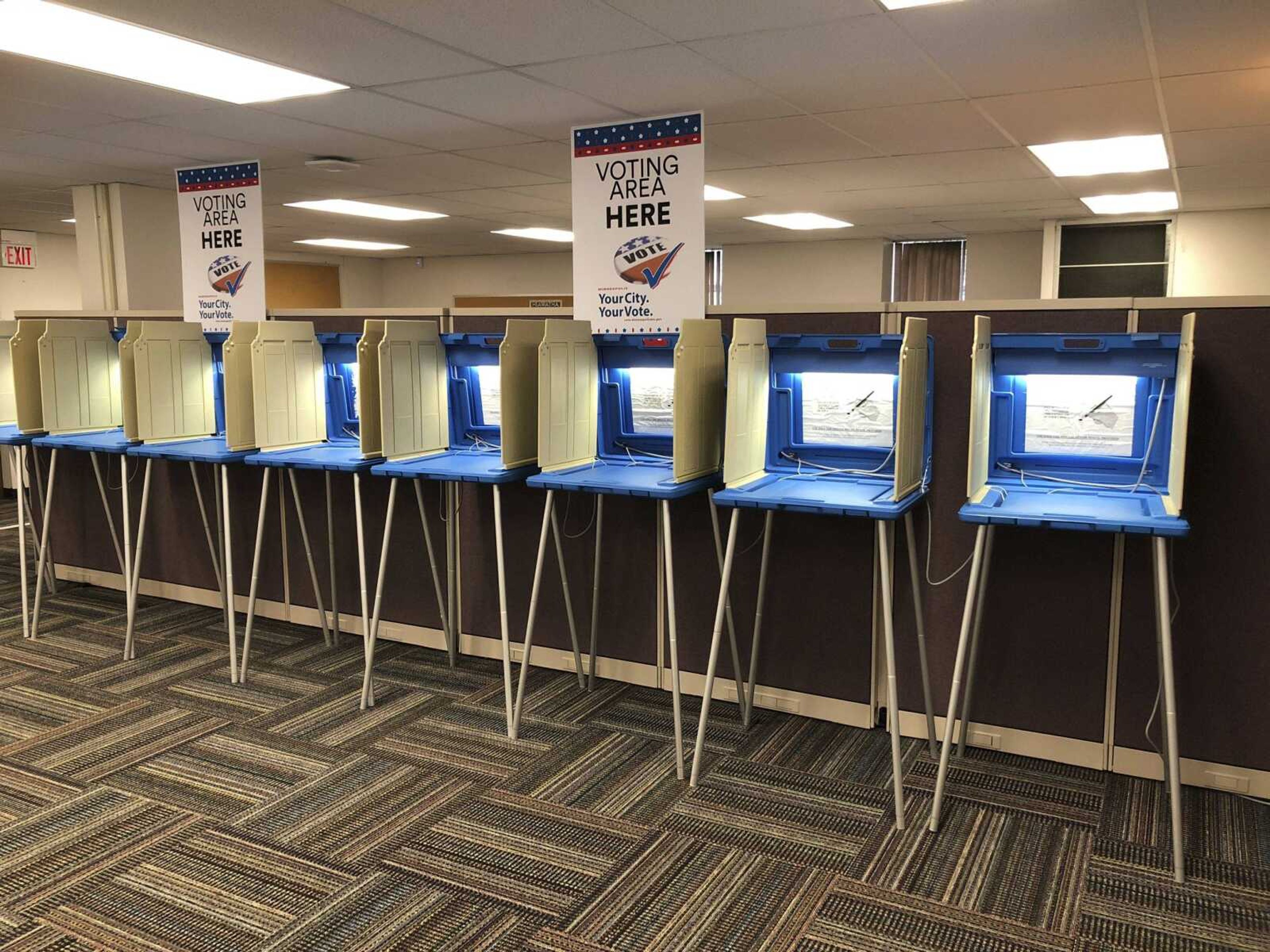Majority worry about 2020 foreign meddling
WASHINGTON -- A majority of Americans are concerned a foreign government might interfere in some way in the 2020 presidential election, whether by tampering with election results, stealing information or by influencing candidates or voter opinion, a new poll shows...
WASHINGTON -- A majority of Americans are concerned a foreign government might interfere in some way in the 2020 presidential election, whether by tampering with election results, stealing information or by influencing candidates or voter opinion, a new poll shows.
The poll from The Associated Press-NORC Center for Public Affairs Research found Democrats far more likely to express the highest level of concern, but Democrats and Republicans alike have at least some concerns about interference.
Overall, half of Americans say they're extremely or very concerned about foreign interference in the form of altered election results or voting systems, even though hackers bent on causing widespread havoc at polling places face challenges in doing so. An additional quarter is somewhat concerned.
Similarly, about half are very concerned by the prospect of foreign governments influencing political candidates or affecting voters' perceptions of the candidates, along with hacking candidate computer systems to steal information.
In total, the poll, conducted Thursday through Monday, shows 63% of Americans have major concerns about at least one of those types of foreign election interference, including 80% of Democrats and 46% of Republicans.
The results make clear despite the efforts of U.S. officials to ward off election interference and to urge public awareness and calm, Americans remain anxious some of the same tactics Russia used to meddle in the 2016 presidential election could surface again in the next race.
Those include the spread of disinformation online to sow divisions among American voters, and the hacking by military intelligence officers of Democratic emails then published by WikiLeaks in the run-up to the election. The efforts were aimed at helping Republican Donald Trump over Democratic rival Hillary Clinton, according to special counsel Robert Mueller's report.
"I think that it's been pretty well-documented that people have been influenced in the past by social media," said Luci Dvorak, 32, an Illinois teacher. She said she found it concerning Trump has been "very casual" about getting foreign help and even seemed to invite it.
Trump said in a television interview last week he would be open to receiving a foreign government's help in the next election. He slightly walked back those comments in a follow-up interview, saying though he would want to look at foreign dirt on an opponent to assess if it was correct, he would "of course" also report it to the FBI or the attorney general.
U.S. officials are on high alert to protect against interference like what occurred in 2016. FBI director Chris Wray has said the bureau regards last November's midterm elections as a "dress rehearsal for the big show in 2020."
He has said efforts to undermine democracy and influence public opinion through social media, propaganda and false personas have continued unabated and are "not just an election-cycle threat."
"We saw that, therefore, continue full speed in 2018, in the midterms," Wray said in April at a Council on Foreign Relations event. "What we did not see in 2018 was any material impact or interference with election infrastructure or, you know, campaign infrastructure."
Connect with the Southeast Missourian Newsroom:
For corrections to this story or other insights for the editor, click here. To submit a letter to the editor, click here. To learn about the Southeast Missourian’s AI Policy, click here.








